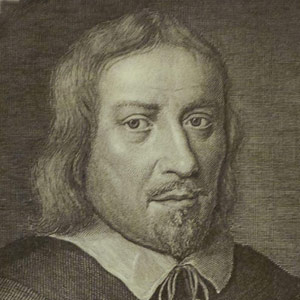
Jacob Boehme (1575 – 1624), also spelled Jakob Böhme, was a German philosopher, Christian mystic, and Lutheran Protestant theologian. He was considered an original thinker by many of his contemporaries within the Lutheran tradition, and his first book, commonly known as Aurora, caused a great scandal. His first job was that of a herd boy. He was, however, deemed to be not strong enough for husbandry. When he was 14 years old, he was sent to Seidenberg as an apprentice to become a shoemaker. Boehme’s writing shows the influence of Neoplatonist and alchemical writers such as Paracelsus, while remaining within the Christian tradition.

Quotes by Jacob Boehme…
Paradise is still in the world, but a man is not in Paradise unless he is born again of God; in that case he stands in his new birth.
The true heaven is everywhere, even in the very place where you stand and go.
Scholar: “Loving master, I can no more endure anything should divert me, how shall I find the nearest way to (the Divine)?”
Master: “Where the way is hardest there walk thou, and take up what the world rejecteth; and what the world doth, that do not thou. Walk contrary to the world in all things. And then thou comest the nearest way to it.”
I, God, press through your branches into the sap and bear fruit on your boughs.
Follow my advice, and leave off your difficult seeking for the knowledge of God by means of your selfish will and reasoning. Throw away that imaginary reason, which your mortal self thinks to possess, and your will shall then be the will of God. If He finds His will to be in His, then will is will become manifest in your will as in His own property. He is All, and whatever you wish to know in the All is in Him. There is nothing hidden before Him, and you will see in His own light.
When thou art gone forth wholly from the creature, and from that which is visible, and art become nothing to all that is nature and creature, then thou art in that Eternal One which is God himself. And then thou shalt perceive and feel in thy interior the highest virtue of love… Whosoever finds it, finds all things.
It is not “man” in the abstract who recognizes anything. It is always a certain principle, having become active in him, that recognizes its own counterpart in external nature, when it comes in contact with it. Only he in whom is light can see the light; only the element of love can feel love; only the divinity in man can know God in and through man.
He to whom time is like eternity, and eternity like time, is free.
But if you keep quiet, and desist from thinking and feeling with your own personal selfhood, then will the eternal hearing, seeing, and speaking become revealed to you, and God will see and hear and perceive through you.
All we taste, against all we lack, is like a single drop of water against the whole sea… for we feed upon His Immensity, which we cannot devour, and we yearn after His Infinity, which we cannot attain.
